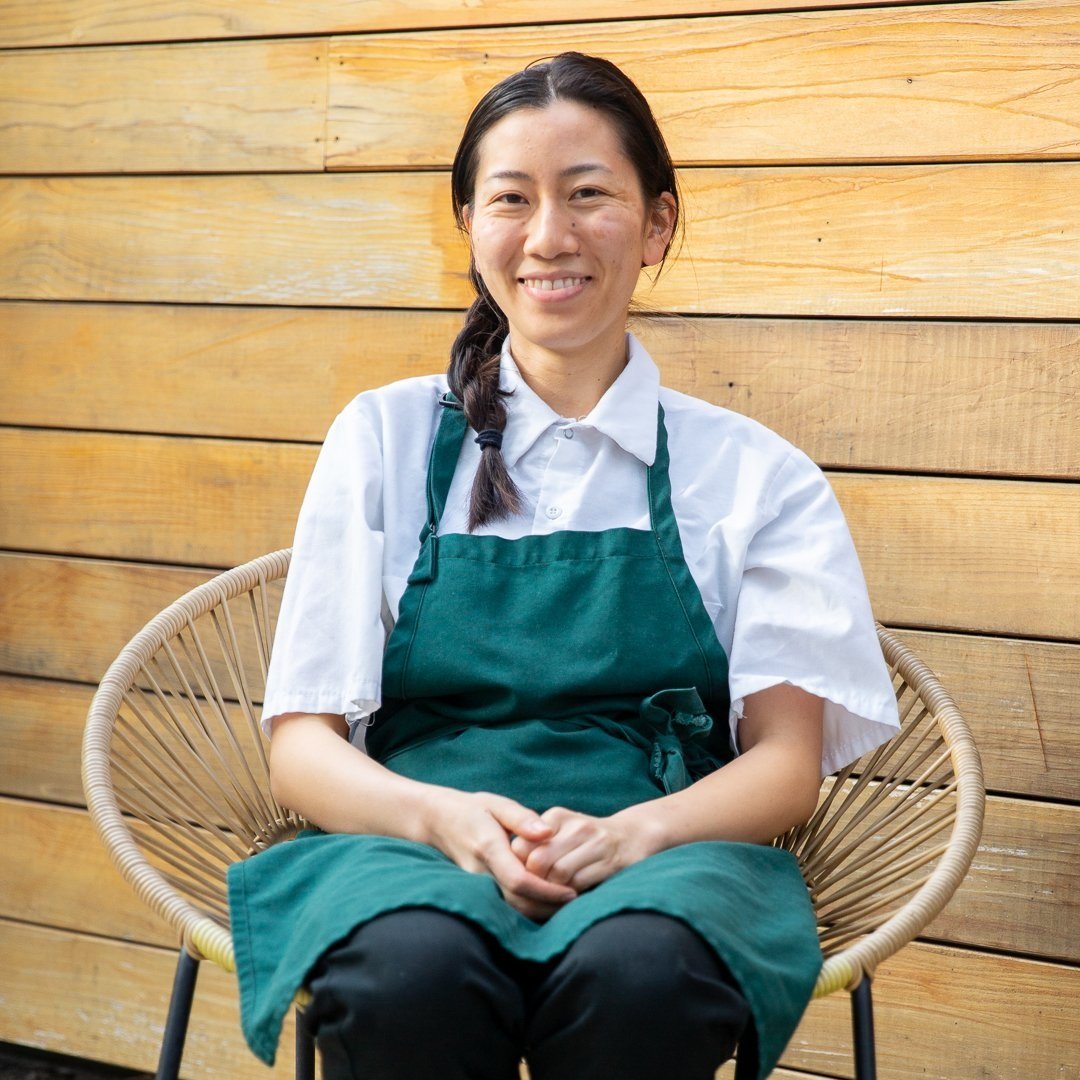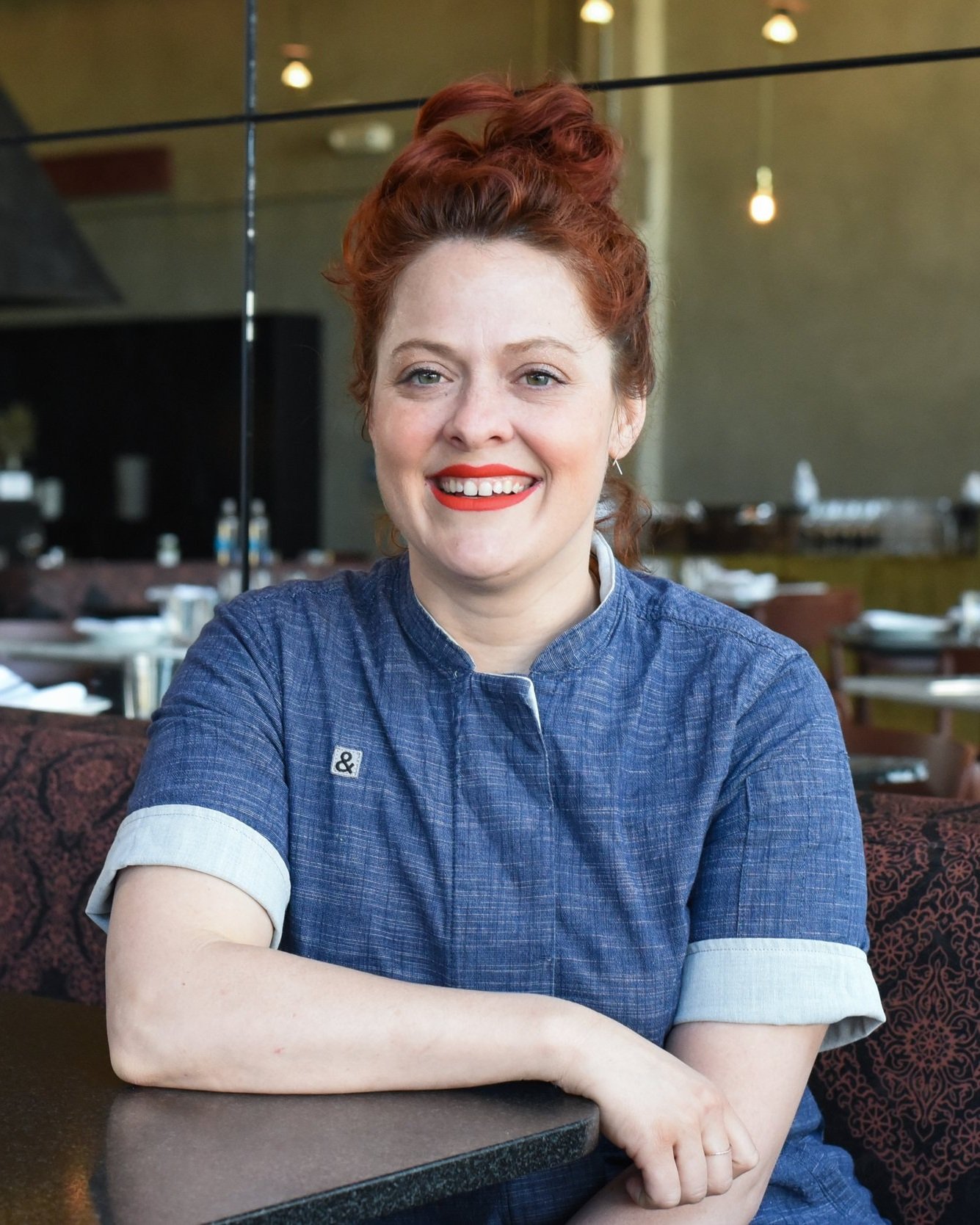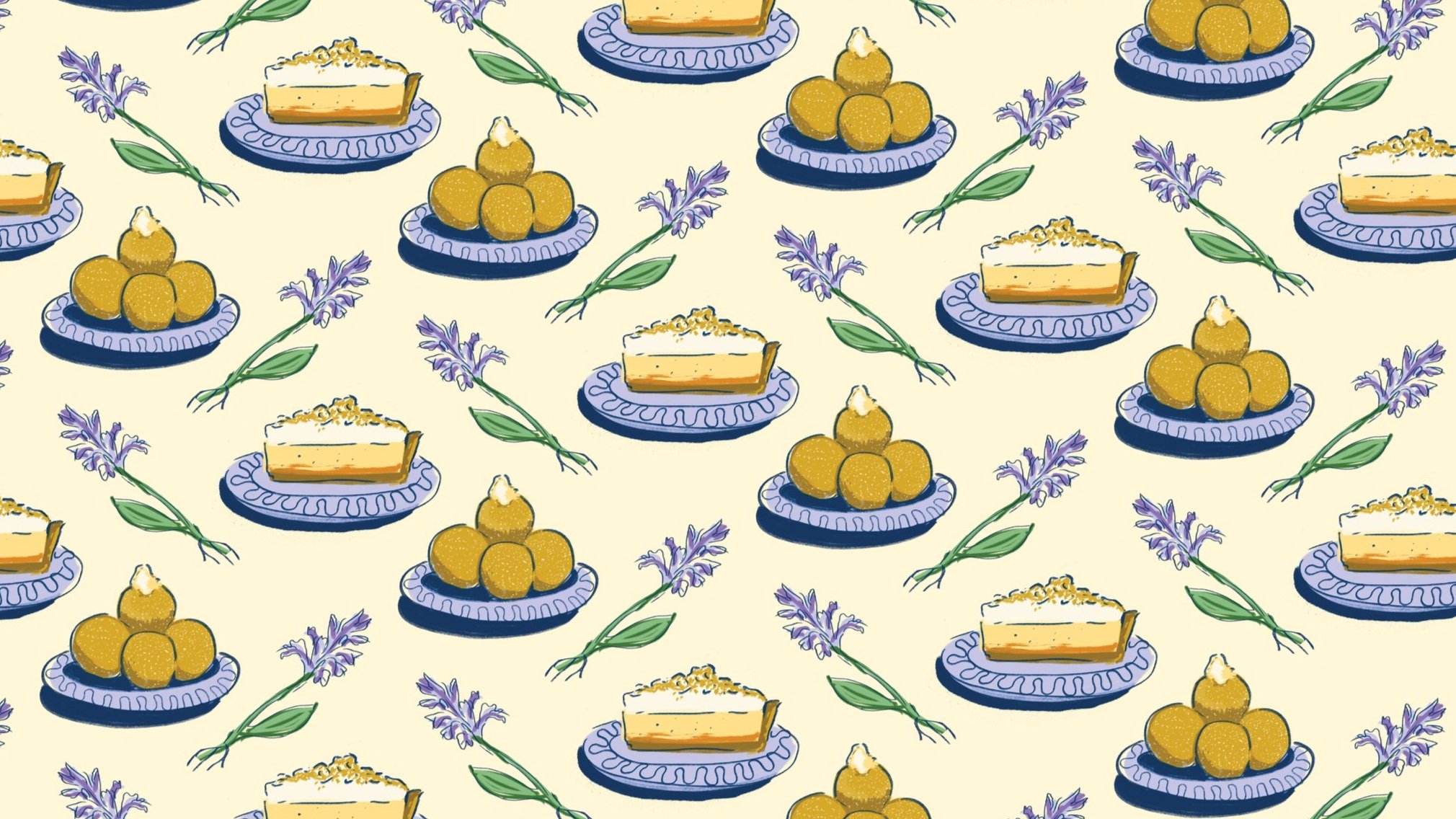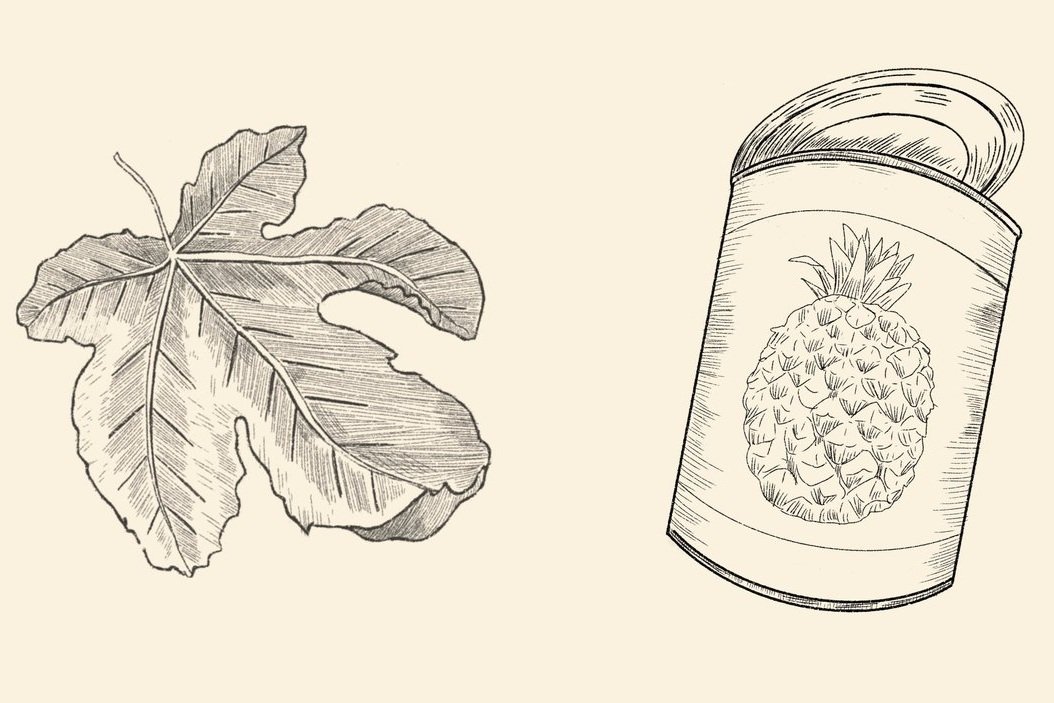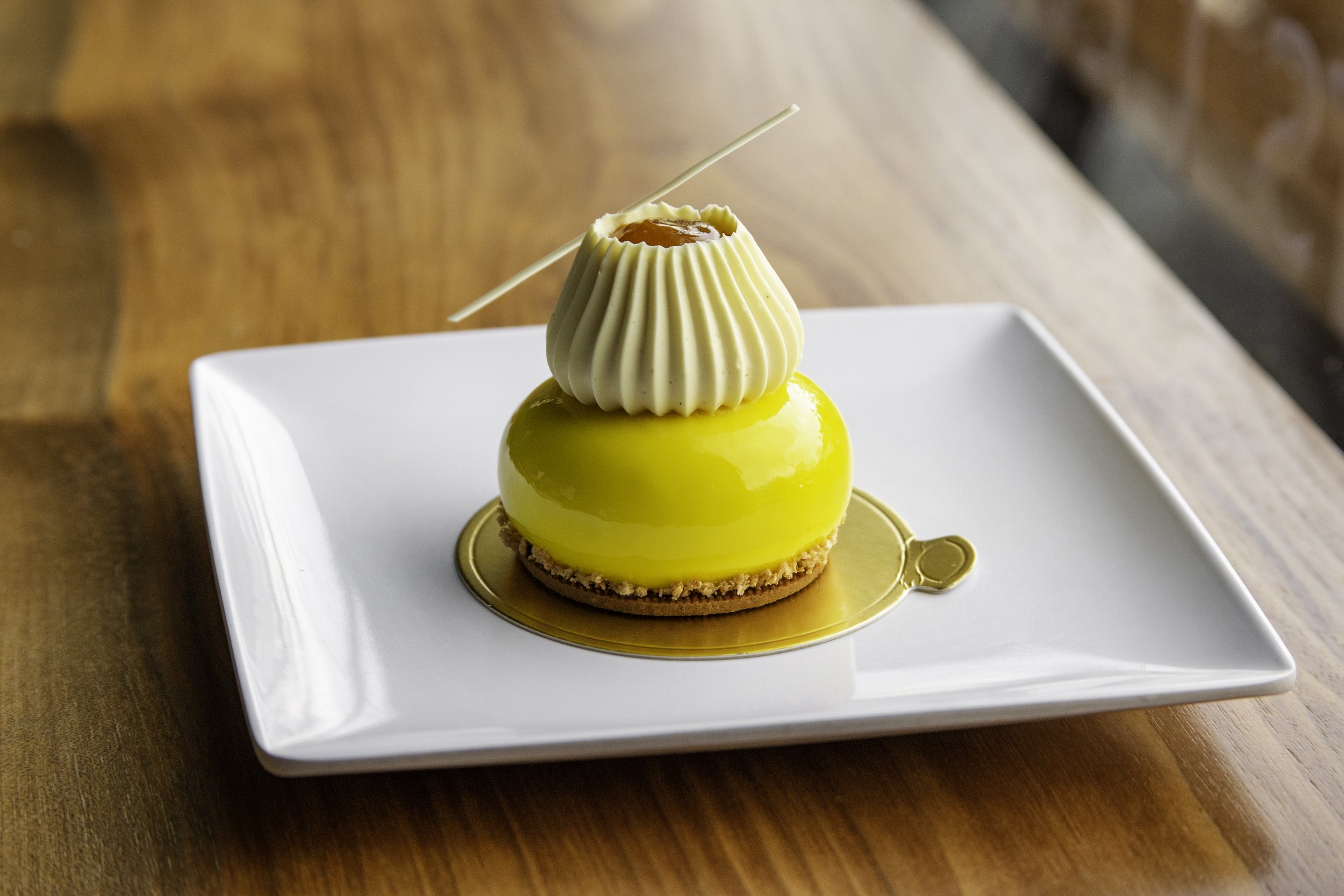The State of Pastry
As restaurant staffs decreased during the pandemic, the role of the pastry chef has arguably changed more than any other in the kitchen. We asked a few of them to share what it’s been like.
pastry chef jennifer shen of jon & vinny’s
jennifer shen’s Lemon Turmeric Cake, Lemon Icing & Candied Kumquats
Jennifer Shen of Jon & Vinny’s
My story is like many others of my time. I started my culinary journey at the height of the Food Network era and at the tail end of the culinary school bubble when the career-changers outnumbered the tattooed hipsters. I am neither. I’m quiet, committed to my craft and my people. I rarely seek attention or accolades for my work and have found such honor and pleasure contributing to my community, both in food and in building teams of dedicated, like-minded individuals.
I’m writing now because we’re under fire. Obviously, you see that in restaurants. But in pastry, we are really under siege. First in, last out is how I have shaped my days for over a decade, and now, I am witness to the shrinking opportunities for my cooks. We have become victims to restaurant life-saving maneuvers—we have been first furloughed and will be last welcomed back to the table when things have mended.
I fear answering another phone call from a friend looking for a pastry cook or chef position that doesn’t exist. The story is common: “I’m willing to do more for less” and “whatever it takes.” Although that attitude is something I feel kindred about, it’s not in a tone of empowerment right now. It’s desperation with egos set humbly aside. If you know pastry cooks, then you know that is certainly not easy.
Previously relishing in my daily rituals of menu and staff development, I have found a different motivation now. I am driven to create products to keep my staff working, to keep us essential, to patronize the farmers and support and not burden the business with our department’s high labor costs. In the end, I know it still might not be enough.
I feel so fortunate to have what I have. I am working. But I want more. I want security for my cooks. I’m going to keep pushing, and I accept that despite all efforts, it’s not all going to be good. I promise to stay optimistic but responsible to the climate. Pressure makes diamonds
pastry chef jennifer yee of baker’s bench
jennifer yee’s Cara Cara Orange Crepe Cake and Orange Pastry Cream
Jennifer Yee of Bakers’ Bench (formerly of Konbi)
When Konbi closed indoor dining at our small, 10-seat bar, the kitchen quickly took over. And I mean quickly. Bar stools gave way for two stainless steel work tables, ceramic ware was tucked into the recesses of our sheds and homes, guest soap was replaced with fluorescent orange antibacterial soap. And because as chefs, we cannot stop cooking and creating, our menu went from one page to two.
The pastry team, which normally shared workstations with garde manger or the prep team, now had its very own station in a 450-square-foot restaurant. I went from working night shifts, taking over the bar after guests left, to mornings of baking and production. It was a bit of a baker’s dream. After all, many bakers don’t have the opportunity to carry their product through every step. Larger operations have separate teams of a.m. mixers, afternoon shapers, and overnight bakers, so whatever you touch, you never see it until the end. But here I am getting to mix, lock in, shape, proof, and bake my croissants. When the bakes are great, my fellow pastry chef and I are proud and smiling big at the 8:50 pre-shift meeting. When the bakes are bad, well, it’s bad.
Closing indoor dining allowed the two-person Konbi pastry team to run the program from start to finish, so in many ways, it is a blessing. It gave me the confidence to know that I could run my own bakery as long as I started small. So now, I’m trying to shake off the weird feeling of being off on a Friday, between my stable job at Konbi and my uncertain new job as the baker/owner of Bakers Bench.
And it’s not just me—the pandemic gave many people the push needed to start their own micro-business. Every time I open Instagram, there is a new pop-up: vegan ube pandesals, chile oils and XO sauce, hand-sewn clothing, jewelry, backyard pizzas, house plants. Shopping small and supporting local business is probably more impactful now than it was in the past, and I love it. I love the tenacity of a creative person, the grit of someone who goes all in on their passion, the buzzing excitement when they share their newest drop.
I think for the most part, the customer reception and attitude toward small businesses cultivates warmth, understanding, and patience. Most guests are kind and gentle about their wrong orders, wait times, or sold-out items. They know that the person fielding emails is probably the same person baking bread. And it’s amazing.
pastry chef rose lawrence of rossoblu and red bread
rose lawrence’s Torta di Amor Rhubarbara: Toasted Spelt Flour Cake, Ricotta, Ruby Chocolate Pudding, Rhubarb Jam, Rhubarb-rosewater Syrup, Sugared Roses
Rose Lawrence of Rossoblu and Red Bread
Wherever you may have worked—bakery, restaurant, rustic, fine dining, sliced and boxed, or plated and sauced—it’s a joke among pastry chefs that we are always marked for the chopping block. Pastry has the most expensive ingredients and is the most labor-intensive station. Pastry can feel precarious and a bit of an uphill battle, even in what has come to be known as “normal times.” That’s why everyone I know who does pastry does it for sheer love. Love of celebration, love of joy, love of the last bite that becomes the memory.
When COVID-19 hit, restaurants began a dance of open, close, open, close. As expected, the first dancers to leave the floor were sugar workers. My peers and I grappled with what to do. Working a very physical job and coming to a sudden halt can be jarring on the body. And mentally? Every feeling seemed to come at once. How to cope with losing celebration in the face of mounting death?
Yet history has shown us that sudden challenges are precisely when sudden originality and great beauty can arise. Pastry went home. We dived deeper into flavor, ingredients, method, and expression. So much blossomed. It was astonishing to see microbakeries opening across the nation, many fueled by wanting to address social justice issues. We connected, we asked for more, and we supported what mattered to us. After all, baking has a rich history with social change.
We hit up our friends for their bakes and created a large, strong network. Many pastry chefs, while missing their kitchens, have no desire to return to “normal,” having found such freedom, support, and appreciation. Beyond the impressive jolt of entrepreneurship was the emergence of new styles. No longer was pastry constrained by collaborations with a savory menu; menus took in all that inspired the baker.
For me, this time to a deeper study of Italian desserts in my ongoing role with Rossoblu. It led to the relaunch of products at Red Bread. My bakery of the last 10 years, which has primarily recently focused on events and consulting, began to offer cakes and bread again. Sourdough felt essential to the human diet but also a life raft for smaller organisms in a time where bacteria was being eradicated. I wanted to do whatever I could do to help. It meant returning to the soil to grow plants and to academia to get a masters in gardening. It meant taking care of me, though health is rarely prioritized in the kitchen.
As the concerns of 2020 continue into 2021, we cannot forget that we are still learning this dance. With restaurants beginning to reopen, I hope the old blindspots don’t find their way back to kitchens. We’ve come too far, created so much. I hope this strong creativity, newfound community, and nationwide organizing continue stronger than ever. Pastry is so powerful.



